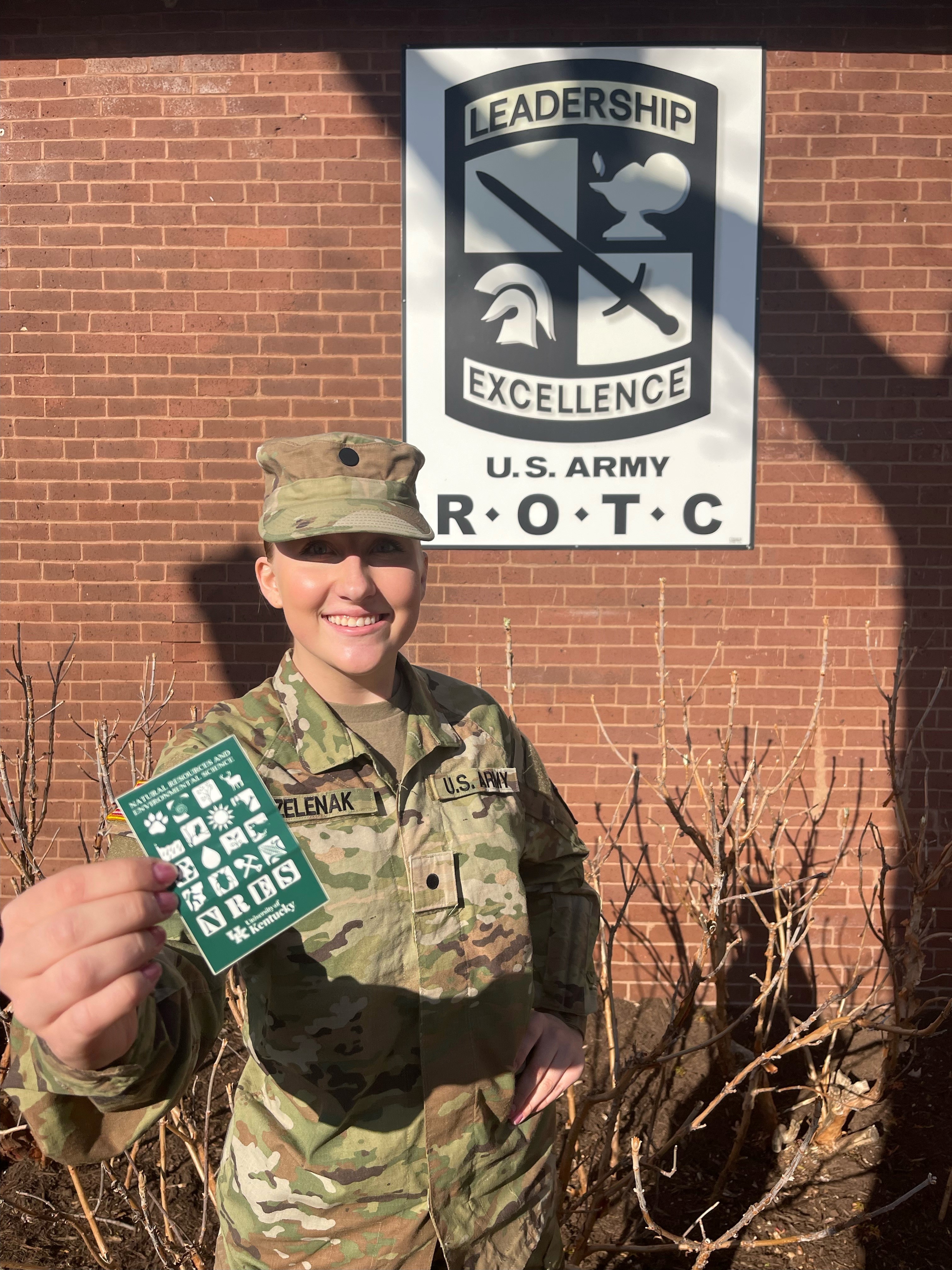By Jordan Strickler

Lexington, Ky. — Since beginning at the University of Kentucky's Martin-Gatton College of Agriculture, Food, and Environment this past year, Peyton Zelenak has worked to integrate sustainability practices into the U.S. military, focusing on reducing pollution.
Zelenak’s natural resources and environmental science major goes beyond the classroom; it forms the foundation for her future leadership in promoting environmental conservation within the military. She is not just another student navigating the Martin-Gatton CAFE classrooms. She’s also a cadet in the UK Army ROTC.
Her military dreams resonate from her mother, an airborne and air assault soldier, who planted the seeds in her daughter from an early age. Zelenak hopes to one day follow in her bootsteps.
"My mom was in the Army for 10 years and really loved it,” said Zelenak, who's from Grove City, Ohio. “She's such an inspiration to me and really pushes me to do my best. I really hope to be like her. I think the UK ROTC and Martin-Gatton CAFE create a great step in that direction."
Zelenak is aware of the military's hefty role in pollution. According to the Department of Defense, the military emitted 51 million metric tons of carbon dioxide equivalent in fiscal year 2021.
The Army is working on reducing its reliance on such fuels as JP-8. The branch intends to achieve net-zero carbon emissions by 2050, a 50% reduction in net greenhouse gas pollution by 2030 compared to 2005 levels and ensure all operational and strategic exercises and simulations consider climate change risks and threats.
Zelenak hopes to push this goal even further. Her aim is to keep folding sustainable practices into military operations with a focus on resource management and the protection of waterways.
"I like the environment and just being outside; that's probably the biggest reason why I chose my degree and joined the Army,” Zelenak said. “I don't want to see nature go to waste. I believe my studies in environmental science can bring a fresh perspective to military practices. There's a lot we can do to minimize our environmental footprint, and I want to be at the forefront of that effort within the National Guard."
One former UK professor thinks Zelenak has the drive to make these dreams a reality:
“Peyton is a phenomenal young lady,” said Mia Farrell, former Martin-Gatton associate dean for diversity, equity and inclusion and one of Zelenak’s instructors. “She was one of the most attentive students I had. Peyton is a hard worker, holds herself accountable and is very punctual. She always has a positive attitude and, what I think is most important, she identified opportunities through the content she was learning in the course. Peyton is a stellar student with a bright future ahead of her.”
This summer, Zelenak will start an internship in urban forestry in her hometown, where she will apply her academic knowledge to practical situations.
"My aim is to bridge my environmental knowledge with practical solutions that can be implemented not only in military operations, but also civilian contexts,” Zelenak said. “It’s about creating a sustainable future."
Making the best military officers in the world; motivating young people to be better citizens. The Army Reserve Officers' Training Corps (ROTC), as it exists today, began with President Wilson signing the National Defense Act of 1916. Although military training had been taking place in civilian colleges and universities as early as 1819, the signing of the National Defense Act brought this training under single, federally-controlled entity: The Reserve Officers' Training Corps. Army ROTC is the largest officer-producing organization with the American military, having commissioned more than half a million second lieutenants since its inception.
Both Martin-Gatton CAFE and ROTC are University of Kentucky land grant intuitions.
